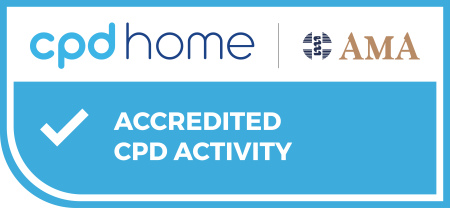Finding accredited CPD
The Skin Imaging Techniques course is structured into a single, detailed unit that explores multiple advanced methods for skin cancer diagnosis, focusing on their clinical utility and evidence-based effectiveness.
Unit 1: Skin Imaging Techniques
This unit is led by Professor Philipp Tschandl and covers various modern skin imaging techniques. It starts with digital dermatoscopy, a widely used method that improves diagnostic accuracy for melanoma and other pigmented lesions. Participants will learn about the physical foundation of dermatoscopy, how it enhances visibility of skin structures, and its effectiveness in reducing unnecessary excisions in clinical practice.
The unit continues with sequential digital imaging, a technique used for short-term and long-term monitoring of high-risk patients with multiple pigmented lesions. It discusses how changes in skin lesions can be tracked over time to detect melanoma early, especially in patients with atypical nevus syndrome.
Reflectance confocal microscopy (RCM) is another key focus, offering a non-invasive, high-resolution method for examining skin at a cellular level. The unit explains its main indications, such as diagnosing difficult lesions in sensitive areas like the face, and highlights its potential to reduce the need for biopsies.
Total body photography is also covered, illustrating its usefulness in tracking new and changing lesions in high-risk patients. This method is particularly helpful for patients with numerous skin lesions, providing a comprehensive overview of the entire skin surface.
The course further explores optical coherence tomography (OCT) and high-frequency ultrasound, newer technologies that allow deeper imaging of the skin, particularly useful for diagnosing non-pigmented skin cancers like basal cell carcinoma. Lastly, electric impedance spectroscopy and Raman spectroscopy are introduced as experimental techniques with promising potential for future skin cancer diagnosis.
This unit provides healthcare professionals with the knowledge and skills to effectively apply or refer patients for these advanced imaging techniques, ensuring early detection and improved outcomes in skin cancer management.
Cost: $195
Suitable for: All degree qualified medical practitioners.
Study mode: 100% online
Disclaimer: Please note, once you click 'Register now' you will be leaving the AMA’s CPD Home website and entering a third-party education provider’s website. If you choose to register for this learning, you will need to provide some of your personal information directly to the third-party education provider. If you have any queries about how third-party education providers use, disclose or store your personal information you should consult their privacy policy.
Upon completion, your CPD activity record may take up to 4 weeks to be reflected on your CPD Home Dashboard.
You have to log in to see the content of this module.
Provided by
Accredited by
